VW Seeking Industry Alliance for Self-driving Cars, Legal Protection for When They Crash

Volkswagen Group is interested in teaming up with other automakers to establish a new industry standard for self-driving technology. While the move would likely help streamline development, VW’s primary concern seems to be legal protection in the event an autonomous vehicle makes a mistake.
The idea of an automaker preparing itself to better cope with the legal ramifications of accidentally killing one of its customers isn’t particularly encouraging, but it’s at least understandable.
Pushing for an industry standard for new tech is commonplace within the automotive sector. Last year, several manufacturers adopted Automotive Grade Linux in an attempt to create a default, open-sourced platform for in-car infotainment. While similar in concept to the standardizing of autonomous technology, the obvious difference is that there usually aren’t lives riding on infotainment systems.
There have, however, been several incidents where autonomous technology and advanced driving aids have failed over the last two years, resulting in a loss of human life and extremely negative publicity. As self-driving solutions are still in development, more accidents will likely arise in the coming years. Volkswagen simply wants to establish an alliance to share development costs and liability claims.
VW’s plans are not yet public, though Automotive News spoke with an anonymous VW executive who outlined the company’s corporate goals and described why they’re being put into place. “When you are involved in an accident, you have a better chance in court when you can prove that your car adheres to the latest technical standard,” the individual said.
“How do you create an industry standard? Ideally, by getting others to use the same sensor kit and software, so for that reason an overarching cooperation between automakers is one of the options we are examining,” continued the VW executive. “The question is: How do we bring products to market that guarantee we made ourselves as small a target for damage claims as possible?”
It sounds a little diabolical on the surface. But it’s not simply a matter of VW figuring out how to best cover its ass in the event of a disaster. Standardizing things helps to create a more level playing field, allowing automakers to tell regulators and courtrooms they followed the agreed-upon actions and weren’t shirking responsibility.
That issue isn’t helped by the lax regulation of autonomous technologies. While giving automakers and tech companies a green light to test whatever systems they think might work has helped, governments helped accelerate development. But the byproduct is a nearly complete lack of legal protection for both the manufacturers of these vehicles and the general public. “Law firms are already in the starting blocks,” the executive said.
Volkswagen is believed to be in discussions with more than 15 different companies, including automakers, concerning the prospective alliance. But standardizing a technology that’s dependent on countless systems, many of them proprietary, isn’t going to be easy. It’s also going to be difficult to get every member group to commit to terms when some are leading the charge into the autonomous revolution, while others are just leaving the self-driving nest.
From Automotive News:
A key criterion when considering partners is whether all can agree that the technology would be open source, meaning there was no restriction on its use by participants. This would also help with ensuring tests were comparable, so validation data from one party would be applicable to all.
Some companies have approached Volkswagen offering to license it a drop-in solution, but this is considered out of the question. VW believes it must gain expertise in all elements of the artificial intelligence down to a self-driving vehicle’s path planning. Simply integrating a supplier’s “black box” into the vehicle without access to the technology behind it would not be acceptable.
However, it might be worth it to share some of the inevitable legal pitfalls associated with self-driving vehicles. “I don’t believe we are the only ones asking ourselves if we really want to take these kinds of risks,” the VW staffer said. “No one wants a repeat of the Uber accident.”
That incident involved a self-driving Volvo XC90 testbed owned by Uber. In spring of this year, the vehicle struck and killed a pedestrian crossing the street in Tempe, Arizona. Its systems completely failed to identify the individual or make any attempt to brake, according to the U.S. National Transportation Safety Board. While the police report faulted the backup driver for negligence after on-board cameras caught the individual watching a cellphone video, Uber still settled with the victim’s family out of court.
Options for an alliance could be presented to the VW Group management board as early as next month.
[Image: NHTSA]

A staunch consumer advocate tracking industry trends and regulation. Before joining TTAC, Matt spent a decade working for marketing and research firms based in NYC. Clients included several of the world’s largest automakers, global tire brands, and aftermarket part suppliers. Dissatisfied with the corporate world and resentful of having to wear suits everyday, he pivoted to writing about cars. Since then, that man has become an ardent supporter of the right-to-repair movement, been interviewed on the auto industry by national radio broadcasts, driven more rental cars than anyone ever should, participated in amateur rallying events, and received the requisite minimum training as sanctioned by the SCCA. Handy with a wrench, Matt grew up surrounded by Detroit auto workers and managed to get a pizza delivery job before he was legally eligible. He later found himself driving box trucks through Manhattan, guaranteeing future sympathy for actual truckers. He continues to conduct research pertaining to the automotive sector as an independent contractor and has since moved back to his native Michigan, closer to where the cars are born. A contrarian, Matt claims to prefer understeer — stating that front and all-wheel drive vehicles cater best to his driving style.
More by Matt Posky
Latest Car Reviews
Read moreLatest Product Reviews
Read moreRecent Comments
- Theflyersfan I used to love the 7-series. One of those aspirational luxury cars. And then I parked right next to one of the new ones just over the weekend. And that love went away. Honestly, if this is what the Chinese market thinks is luxury, let them have it. Because, and I'll be reserved here, this is one butt-ugly, mutha f'n, unholy trainwreck of a design. There has to be an excellent car under all of the grotesque and overdone bodywork. What were they thinking? Luxury is a feeling. It's the soft leather seats. It's the solid door thunk. It's groundbreaking engineering (that hopefully holds up.) It's a presence that oozes "I have arrived," not screaming "LOOK AT ME EVERYONE!!!" The latter is the yahoo who just won $1,000,000 off of a scratch-off and blows it on extra chrome and a dozen light bars on a new F150. It isn't six feet of screens, a dozen suspension settings that don't feel right, and no steering feel. It also isn't a design that is going to be so dated looking in five years that no one is going to want to touch it. Didn't BMW learn anything from the Bangle-butt backlash of 2002?
- Theflyersfan Honda, Toyota, Nissan, Hyundai, and Kia still don't seem to have a problem moving sedans off of the lot. I also see more than a few new 3-series, C-classes and A4s as well showing the Germans can sell the expensive ones. Sales might be down compared to 10-15 years ago, but hundreds of thousands of sales in the US alone isn't anything to sneeze at. What we've had is the thinning of the herd. The crap sedans have exited stage left. And GM has let the Malibu sit and rot on the vine for so long that this was bound to happen. And it bears repeating - auto trends go in cycles. Many times the cars purchased by the next generation aren't the ones their parents and grandparents bought. Who's to say that in 10 years, CUVs are going to be seen at that generation's minivans and no one wants to touch them? The Japanese and Koreans will welcome those buyers back to their full lineups while GM, Ford, and whatever remains of what was Chrysler/Dodge will be back in front of Congress pleading poverty.
- Corey Lewis It's not competitive against others in the class, as my review discussed. https://www.thetruthaboutcars.com/cars/chevrolet/rental-review-the-2023-chevrolet-malibu-last-domestic-midsize-standing-44502760
- Turbo Is Black Magic My wife had one of these back in 06, did a ton of work to it… supercharger, full exhaust, full suspension.. it was a blast to drive even though it was still hilariously slow. Great for drive in nights, open the hatch fold the seats flat and just relax.Also this thing is a great example of how far we have come in crash safety even since just 2005… go look at these old crash tests now and I cringe at what a modern electric tank would do to this thing.
- MaintenanceCosts Whenever the topic of the xB comes up…Me: "The style is fun. The combination of the box shape and the aggressive detailing is very JDM."Wife: "Those are ghetto."Me: "They're smaller than a Corolla outside and have the space of a RAV4 inside."Wife: "Those are ghetto."Me: "They're kind of fun to drive with a stick."Wife: "Those are ghetto."It's one of a few cars (including its fellow box, the Ford Flex) on which we will just never see eye to eye.



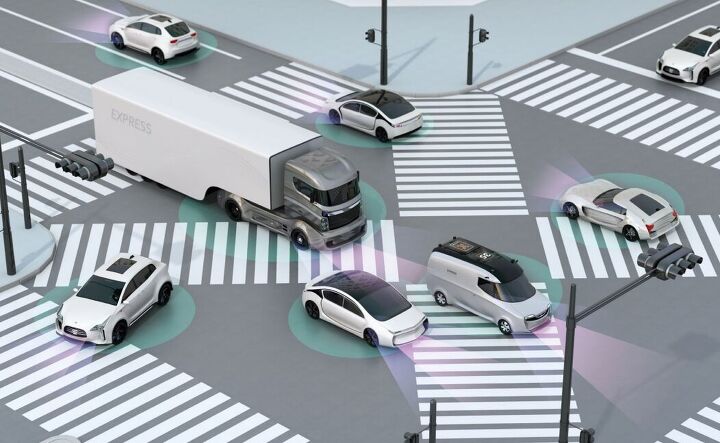

















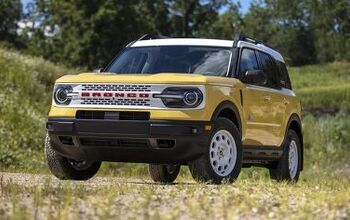
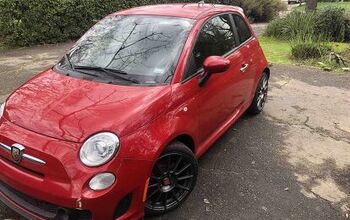

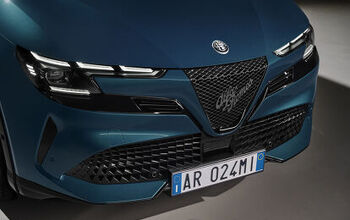


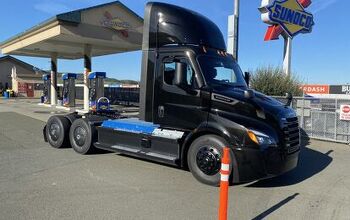






Comments
Join the conversation
I will. But I also trust my parking brake to work well enough, that I usually omit blocking the wheels every time I park on a hill in San Francisco. As it is, assessing "liability" for every little maybe-slightly-less-than-5-nines-optimal happening in a complex system, serves exactly no other purpose than providing gobs of unearned rent for net-negative-contribution ambulance chasers and FIRE racketeers. That is a genuinely huge problem. A clear symptom of a society ending one, in fact. But whether some dude's billycart is equipped with cruise control or not, doesn't really alter the issue much. At best, it may provide a jumping off point for a more general debate about pathologies already entrenched.
I personally think that today's self-driving cars haven't been fully ready to be operated on public roads. There have been quite many accidents with these cars involved in these past few years. I have just read an article about this at https://www.lemberglaw.com/self-driving-autonomous-car-accident-injury-lawyers-attorneys/. I hope the car's manufacturers would think seriously about how to perfecting the features of these cars.